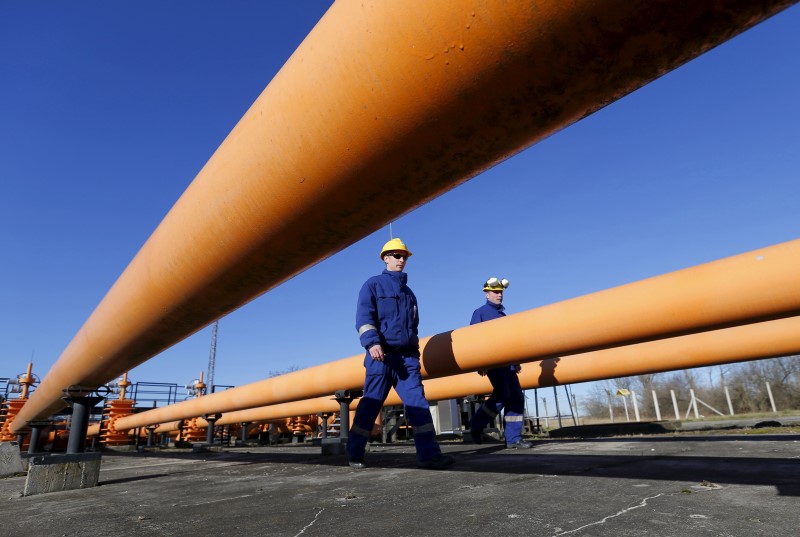Investing.com - U.S. natural gas futures turned around and registered losses in North American trade on Thursday, after data showed that natural gas supplies in storage in the U.S. declined less than expected last week.
The U.S. Energy Information Administration said in its weekly report that natural gas storage in the U.S. fell by 206 billion cubic feet in the week ended December 29, while analysts had forecast a decline of 221 billion.
After the release, natural gas for delivery in February on the New York Mercantile Exchange fell 0.3 cents, or about 0.10%, to trade at $3.003 per million British thermal units by 10:32AM ET (14:32GMT).
Futures had been rising by 2.4 cents, or about 0.8%, at $3.032 prior to the release of the supply data.
That compared with a draw of 112 billion cubic feet (bcf) in the preceding week and represented a decline of 192 billion from a year earlier and was also 192 bcf below the five-year average.
Total U.S. natural gas storage stood at 3.126 trillion cubic feet, 5.8% lower than levels at this time a year ago and also 5.8% below the five-year average for this time of year.
Natural gas started off the year above the $3.00 mark this week where it has remained despite some profit-taking in the last few of days.
A wave of freezing weather hitting the eastern United States has spiked demand as cold weather entices customers to turn up their thermostats. In fact, Bloomberg data showed that the U.S. burned record levels of natural gas just as temperatures hit all-time lows on New Year’s Day.
Adding to the supply side of the bullish equation, the severe cold is actually cutting production as water vapor in pipeline systems freezes and thus hinders the flow of gas.
However, observers remark that these shutdowns are temporary and that the bigger picture in natural gas prices reflects the belief that the solid growth in output that began in the second half of 2017 will continue, limiting the possibility of supply shortages.
